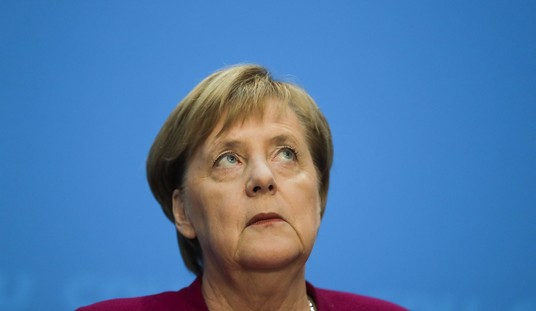Democrats in the House have little relevance in the 112th Session of Congress. The Republicans have a large enough majority to pass any bill they desire, as long as it passes muster within their caucus. Other than using a discharge petition, Democrats can’t even get a bill to the floor without GOP cooperation, and once there, can’t get one passed without significant Republican support. Boehner has allowed Democrats to bring a few bills to the floor already just to make a point about their irrelevance by seeing their proposals go down in flames in full floor votes.
However, there is functional irrelevance, with which every minority party caucus has to contend, and political irrelevance — which Rep. Earl Blumenauer (D-OR) apparently wants to perpetuate (via Instapundit):
A group of House Democrats is calling for any deal to raise the debt ceiling to bring about the end of the Bush tax rates for the wealthy.
The lawmakers, led by Rep. Earl Blumenauer (D-Ore.), also say that, following last week’s weak job report, they are concerned that certain decreases in federal spending could hurt the economy’s recovery.
“At this point, both government and private-sector economists agree that sharp immediate cuts in government spending risk plunging our economy into a double-dip recession that will cost further jobs and ultimately worsen our fiscal situation,” the lawmakers wrote in a letter obtained by The Hill.
They added that allowing the Bush tax rates for the wealthiest to expire at the end of next year would by itself “stop the growth of the deficit over the next decade.”
Not only do Blumenauer and his cohorts demonstrate their political irrelevance, they’re also displaying astonishingly bad math skills as well. The projected revenue from hiking the top tax rate to its pre-Bush rate, even using static tax analysis, is around $700 billion over a decade. A $700 billion infusion would not eliminate the “growth of the deficit” over a decade, not at current rates of spending and growth in entitlement spending projected over that period; in fact, it wouldn’t even cut this year’s deficit in half.
Clearly, though, voters are even less interested in tax hikes than they are in raising the debt ceiling. The latter is wildly unpopular with voters, who want spending cuts to resolve the deficit problem. In April, a CBS poll showed 63% opposed to a debt-ceiling hike, a finding confirmed by one poll after another. Telling voters that they can only get a debt ceiling hike if a tax increased is attached is somewhat akin to having someone say he’ll only steal your wife if you let him clear out your bank account, too.
Besides, Barack Obama took this issue off the table until the end of 2012 for a reason. Voters had just clobbered the Democrats in the midterms over spending and possible tax hikes. Not only do these Democrats want to renege on the bargain that Obama cut with Republicans at the same time that the White House is trying to wheedle Republicans to give on budget talks by claiming their trustworthiness on spending reductions, they will end up hanging the label of tax-hikers back on the Democratic Party for the 2012 election, too.
Blumenauer and his gang of math-challenged spenders are mainly irrelevant in terms of shaping policy, but he’s a great reason why voters need to keep Blumenauer irrelevant after 2012, too.








Join the conversation as a VIP Member